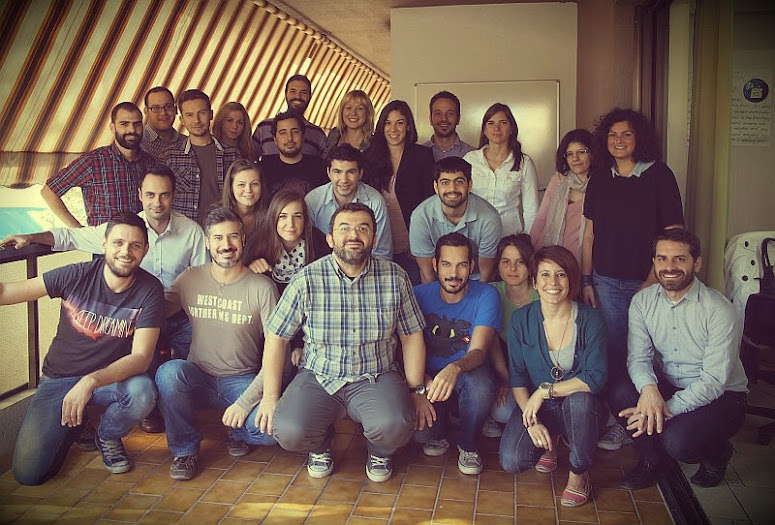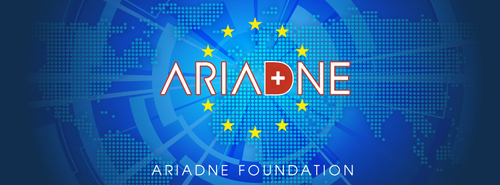Another year has come to an end - my 4th year in a row for Agro-Know. As usually, this was a year full of trips, events and interesting work and I would like to present an overview of what I did during this year. This time, I tried to experiment with infographics which I really love and you can see the results of this experimentation right below:
For those who still like a traditional list with links, here it is!
In chronological order
- Organic.Lingua 7th Project meeting (14-17/1/2014, Birmingham, UK)
- Organic.Lingua Greek user trial (12/2/2014, Athens, Greece)
- Webinar@AIMS:“Knowledge Organization Systems (KOS): Management of Classification Systems in the case of Organic.Edunet” (21/2/2014, online)
- Short trip to Alcalá de Henares, Spain (26-28/2/2014)
- Participation in EDF 2014 (19-20/3/2014, Athens, Greece)
- RDA 3rd Plenary Meeting (25-28/3/2014, Dublin, Ireland)
- Participation in in SEMIC 2014 Conference (9/4/2014, Athens, Greece)
- CIARD-GODAN Joint Consulation Meeting (22-24/4/2014, Rome, Italy)
- Organic.Lingua 3rd Review Meeting (28-30/4/2014, Luxemburg)
- ARIADNE Foundation General Assembly (5/5/2014, Athens, Greece);
- EdReNe 11th Conference (6/5/2014, Athens, Greece)
- LRE Subcommittee meeting (7/5/2014, Athens, Greece).
- I was assigned the role of Marketing & Networks Manager of Agro-Know (1/6/2014)
- Herbal.Mednet 4th project Meeting (4-6/6/2014, Bucharest, Romania)
- "Agriculture for Life, Life for Agriculture" International Conference (6/6/2014, Bucharest, Romania)
- SemaGrow 2nd Hackathon - Introductory Course (presentation on agri-food big data (4/7/2014)
- ICARDA meeting for defining the Open Access plan based on the CGIAR Mandate (Amman, Jordan, 3-9/9/2014)
- Agro-Know internal training: Using the Agro-Know blog (2/10/2014)
- Reached 100 (personal) posts in the Agro-Know blog (5/11/2014)
I am really curious to see what 2015 is going to bring and if I will manage to create a similarly large list of highlights like this one...
For those who still like a traditional list with links, here it is!
In chronological order
- Organic.Lingua 7th Project meeting (14-17/1/2014, Birmingham, UK)
- Organic.Lingua Greek user trial (12/2/2014, Athens, Greece)
- Webinar@AIMS:“Knowledge Organization Systems (KOS): Management of Classification Systems in the case of Organic.Edunet” (21/2/2014, online)
- Short trip to Alcalá de Henares, Spain (26-28/2/2014)
- Participation in EDF 2014 (19-20/3/2014, Athens, Greece)
- RDA 3rd Plenary Meeting (25-28/3/2014, Dublin, Ireland)
- Participation in in SEMIC 2014 Conference (9/4/2014, Athens, Greece)
- CIARD-GODAN Joint Consulation Meeting (22-24/4/2014, Rome, Italy)
- Organic.Lingua 3rd Review Meeting (28-30/4/2014, Luxemburg)
- ARIADNE Foundation General Assembly (5/5/2014, Athens, Greece);
- EdReNe 11th Conference (6/5/2014, Athens, Greece)
- LRE Subcommittee meeting (7/5/2014, Athens, Greece).
- I was assigned the role of Marketing & Networks Manager of Agro-Know (1/6/2014)
- Herbal.Mednet 4th project Meeting (4-6/6/2014, Bucharest, Romania)
- "Agriculture for Life, Life for Agriculture" International Conference (6/6/2014, Bucharest, Romania)
- SemaGrow 2nd Hackathon - Introductory Course (presentation on agri-food big data (4/7/2014)
- ICARDA meeting for defining the Open Access plan based on the CGIAR Mandate (Amman, Jordan, 3-9/9/2014)
- Agro-Know internal training: Using the Agro-Know blog (2/10/2014)
- Reached 100 (personal) posts in the Agro-Know blog (5/11/2014)
I am really curious to see what 2015 is going to bring and if I will manage to create a similarly large list of highlights like this one...























